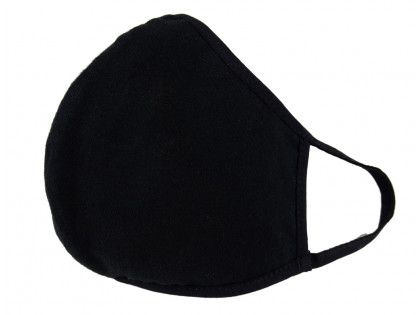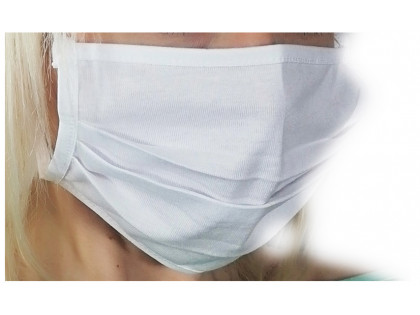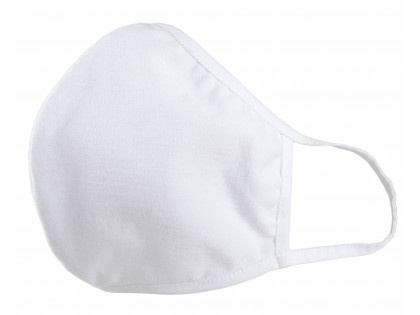Cotton masks
There are 3 products.
Showing 1 - 3 of 3 items
Czarna maska dwuwarstwowa bawełna Czarna maska dwuwarstwowa bawełna
GBP 1.35 GBP 1.69 -20%Reduced price!
Showing 1 - 3 of 3 items
Does the mask protect against the coronavirus ?
That's a question many people ask themselves. The media, internet forums and the press have been discussing it for several weeks. Among medical authorities we have both supporters of wearing them and those who think that healthy people should not wear masks.
How does an infection occur
The coronavirus is a respiratory virus, it spreads by the drip tract. We become infected when it enters our airways, and this happens when we are too close to the sick person or when we come into contact with objects, places where the virus particles have settled. This usually happens when a person with COVID 19 sneezes or coughs. During a cough, the virus particles are ejected at a distance of 2 meters at a speed of 100 m/s, and when we sneeze at a distance of 6 meters at a speed of 50 m/s. Touching the infected surface with your hand and then touching the area around your mouth, eyes or nose leads to infection.
Experts from WHO - World Health Organization recommend that the masks should be worn by infected people and all people with infection syndromes - fever, high temperature, breathing difficulties sneezing and coughing. The use of masks is crucial for people taking care of infected coronaviruses. A sick person should wear a mask to reduce virus spraying during coughing, rhinitis or speaking, while people taking care of COVID 19 infected people, doctors, nurses of people in their immediate vicinity, thanks to masks protect their airways.
Types of masks
Surgical masks - in accordance with the standards for filtration levels, which are determined by the BFE, surgical masks are divided into the following types: Type I, Type IR, Type II, Type IIR. Type II masks are used in operating theatres, made of polypropylene non-woven fabric, and their effectiveness is estimated at 98%.
2) N95 dust masks - equipped with a filter against microbiological contamination, which is able to filter about 98% of particles floating in the air.
3) Anti-viral, antibacterial, reusable FFP3 masks - most of them prevent the penetration of dusts into the respiratory system, but do not protect against the transmission of pathogenic microorganisms, the exception is masks with an N99 class filter, which stops 99% of contaminants i.e. viruses, bacteria, harmful dusts
Masks are a barrier that can protect us from coronavirus infection to some extent. And the spread of the epidemic. However, in order to better protect ourselves from it, it is necessary to take care of hygiene, frequent washing of hands and disinfection with bactericidal liquids, and to isolate ourselves from potential sources of infection as far as possible, and these are primarily places where we have a large human population. Hence the appeals and actions in which people from the front pages of the newspapers are also involved to stay at home, such as the #hosthost home initiative.























